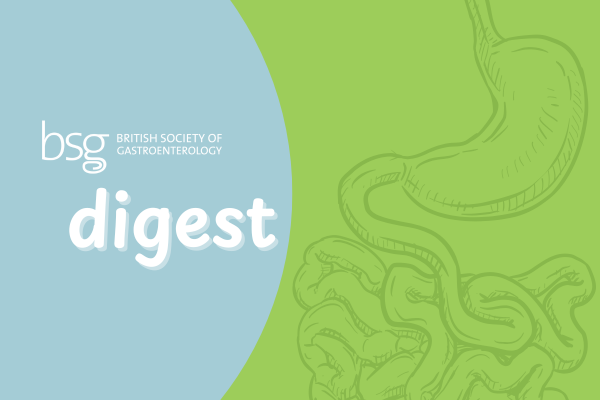
BSG: a welcome home for all our workforce
Over the past couple of weeks, I have been travelling around the UK to various meetings, organised by BSG or by national societies – I have visited 3 of the four UK nations, and look forward to completing the list as a guest of the Scottish Society of Gastroenterology in December. It is clear we all face similar challenges throughout the UK to various degrees, but I was struck by the enthusiasm and determination to make things better by all professional groups involved in gastroenterology, and allied specialties. There are valid concerns and grievances, culminating in disquiet and strikes, but there are many who still have stimulating, enjoyable, and rewarding aspects of their jobs, whether medics, nurses or other health professionals. This may seem a distant hope to many, particularly while trainees or in the early stages of their career, but there are many aspects of our jobs, and opportunities to do other things, which can make it worthwhile. Within the specialty with the highest burnout rate of the medical specialties, this may seem very optimistic, or indeed unrealistic, but we should look at the positive things that may be possible as well as quite rightly highlighting the problems. There are many who do still enjoy their work; not every day, not in every situation, and maybe not during certain career phases. This was one of the themes that emerged from our recent BSG Strategy meeting in Cardiff. We must never underestimate the challenges, but perhaps we should celebrate some of the positive aspects more often, and I have been as guilty of this as anyone in focusing predominantly on the very real challenges we face. I still think that medicine is the best job in the world, and of course gastroenterology the best specialty, but I accept that we have work to do to make this a reality for others.
We proudly launched our Equality, Diversity and Inclusion strategy this summer, and we have initial detailed data on aspects of our membership, BSG committees, and presenters at meetings which will be available on our website very shortly, with regular updates. Transparency is key to this process, and we will work continually to improve any perceived inequalities. Diversity applies not just to gender, ethnicity and protected characteristics, but within the BSG we want to see a diversity of backgrounds, a diversity of hospital settings, and a diversity of health professionals, sometimes doing a more diverse range of work to support other groups. At the strategy meeting, we spent time focusing on what we can do to support our nursing members, and to encourage others to join, and again encourage diversity. This should be led by our nursing colleagues, with support from the other professional groups, and BSGNA led their own awayday meeting recently to set the strategic goals to achieve this.
We should not only have diversity within the BSG, but we need to have Inclusion too. We have actively welcomed Physician Associates within gastroenterology and within the BSG, though there are relatively few in number at present in our specialty. Within the UK, there are approximately 4000 PAs and they have been present within the NHS for twenty years. Their role has been unclear to some, but they provide a vital part of our workforce, and indeed can free up our trainees to receive adequate specialty training, as well as supporting the service for the benefit of our patients. There are current issues around registration but this, together with the ability to prescribe, will come shortly. Very recently there has been vocal concern from some regarding PAs being trained in endoscopy – it is very clear to us within the BSG leadership that our medical trainees must have adequate protected time for training, no matter who else is being trained in any aspects of our work. This is particularly brought into focus by the erosion of specialty training time that we are seeing following the introduction of Shape of Training, and clear training deficits have already been identified in a survey conducted last year.
I have however been disappointed, and indeed shocked, by some of the social media vitriol against PAs, much of it based on misinformation or misperception. This has come from other medical specialties predominantly, but some of this is spilling over into the thoughts and messages coming from some within gastroenterology. The negative messaging regarding PAs being trained in endoscopy is very reminiscent of the prejudicial reaction to nurse endoscopists around twenty years ago. Clinical Endoscopists are of course accepted as a very valuable, and indeed essential, part of our workforce now. Anyone trained in endoscopy in the UK, whether a doctor, nurse, or Physician Associate, will be trained to the same world-leading JAG certified standards, and subject to the same rigorous post-accreditation quality assurance with KPIs, for the benefit of our patients. We know that we have a workforce crisis in the NHS, and ever-increasing demand, but there is room for collaborative working, and indeed inclusion, to help solve this. This should not be to the detriment of any of our current workforce, in a substantive post or in training but, if planned and implemented appropriately, can make all our lives better and allow time for those aspects of the job which make it all feel worthwhile.
Prof Andy Veitch
BSG President
.png?lang=en-US&ext=.png)
Autumn '24 Presidents Bulletin
Presidents Update for BSG Digest Autumn 2024

